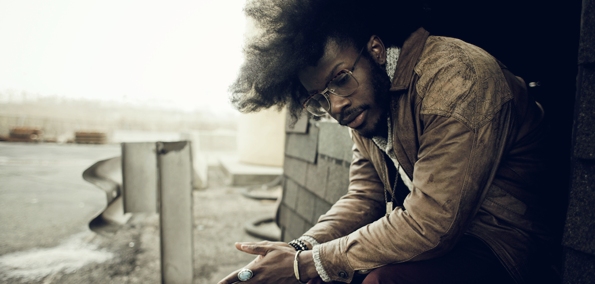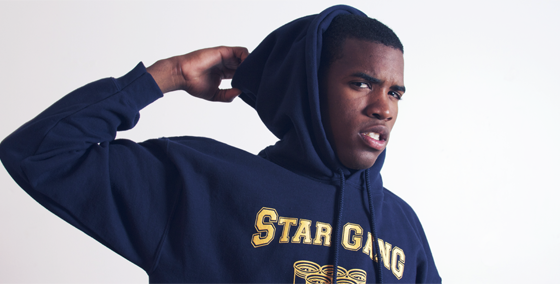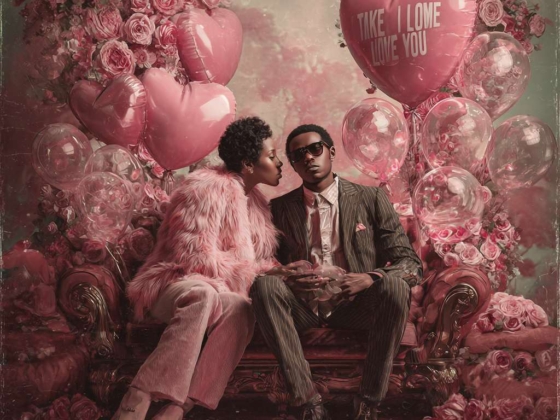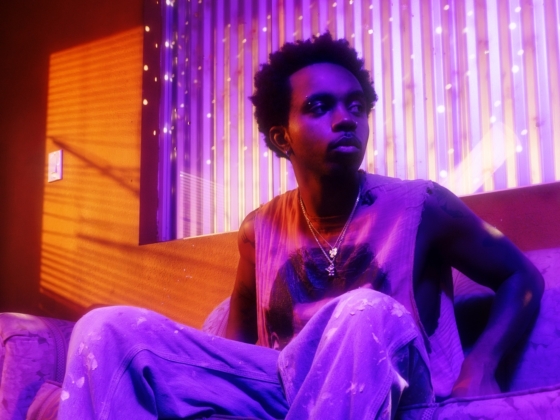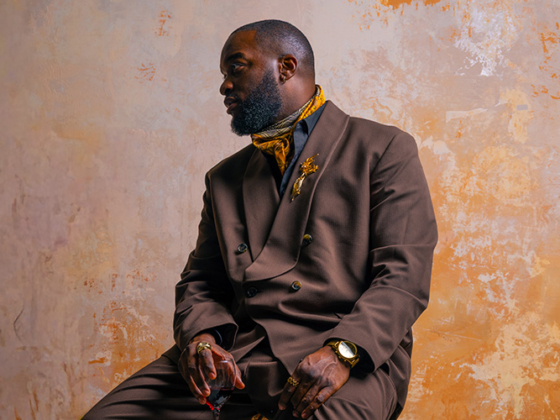The point of any artist interview is not merely to ask the subject where they're from or who their favorite artist is. It's to hear their thoughts on growing up in several cultures and multiple cities. Or it's about what type of art, if any, hangs on the walls of the apartment they go back to when they're not touring. It's about knowing them outside of their music because ultimately, those are the things that make up their music.
That, in part, was our intent when we spoke with sonic soul crooner, Jesse Boykins III: to learn more about who Boykins is. Since 2008, the classically trained producer, vocalist and arranger, has been consistently securing his place as a critically acclaimed soul artist with the release of his initial album, Dopamine: My Life On My Back and subsequent successful collaborations with The Foreign Exchange, Theophilus London and MeLo-X. He is currently working on his third album, Love Apparatus.
EARMILK: What are you reading these days?
Jesse Boykins III: Right now? I'm actually, um, reading The Heart of Tantric Sex by Diana Richardson. I've been reading it for a while, taking my time.
EM: Tantric sex, eh? Why that subject?
JBIII: I guess I'm just trying to figure out this balance thing between a man and a woman. It's not what people might think. It teaches about self and about the balance between yourself and your loved one and how it crosses over to a lot of other aspects of your life and aspects of your character. It's connected to quite a few other things.
EM: That's cool, I never thought of it that way. Maybe I'll have to look into it.
JBIII: Yeah, [laughs] it's cool.
EM: Tell us about "schwaza". What does it mean?
JBIII: Actually my creative director, business partner and best friend, J. Woo, he made up the word in Berlin in 2011 in January. He came to the hotel saying "schwaza", with a lot of bags of free stuff and kept saying that and was like, "It's 'swag' in German." [Woo and I] don't really say "swag". It's not something I like to say. But when we got to NY, we didn't stop saying it. I had a revelation the other day. I was watching the documentary, "Marley" [on Bob Marley] and they were saying "irie", and was like, "Irie… schwaza… it's like saying, 'That's dope' or when someone does something good, you say "irie" or "schwaza."
EM: Speaking of Marley, you're Jamaican and have lived in Jamaica. How would you say your background influences you?
JBIII: I say I'm influenced by reggae and people are like, "I don't hear it. How are you influenced by it?" But it's not just about the music, it's about the message, about love and peace. And I acknowledge that and I feel a lot of my writing and the reason I write the way I write is because I grew up listening to that stuff. But as far as reggae music goes, that's world music, that's world soul. Everyone connects to that. A lot of people. It's really profound, where it's so simple, "One love, one heart", but it's like, "Wow, that's deep too." I write a lot of songs where the hook is really simple. For example, a pantyhose is symbolic of a working woman who gets up early and comes home to take care of you. You only have yourself to take care of but she's working all day and comes home to cook for you and take care of you.
[youtube]https://www.youtube.com/watch?v=VKi_xKRfljA[/youtube]
I like songs that are open to interpretation, those are the best songs. When you have to listen to it over and over again, I like music like that. I feel like people don't pay attention to that or as far as artists go, they don't. There are a lot of artists that do it and are really good at it. It's like learning anything: experiencing it is what basically gets you better at it but if you listen to a song but you don't experience it then you only get so much out of it. With a mainstream song or a bad mainstream song, you get songs that don't last more than three months. Even if it wasn't for me, I promised myself I wouldn't write songs like that. I find the balance between, "Is this major enough for everyone to sing along and be like, 'This is cool,'" and then also be good for those who are intelligent enough to say, "Oh, he's deep and saying some real shit."
EM: I was sort of struck by the art work of "B4 The Night Is Thru". It's really stylized, like all of your other artwork, but different than the others. Do you create your own album art? Did you come up with this concept?
JBIII: I usually come up with the concepts and then I give my concepts to Woo and he just makes sense of it because I always say some crazy shit and then he just opens up Photoshop and will be like,"This is the cover album," and I'm like, "Oh shit, that's exactly what I was thinking of." And the music videos are directed by him. We've been through 10 years of friendship, he knows me a lot and we've been through some shit so he already knows what we're trying to execute. The "B4 The Night Is Thru" picture is inspired by Marcel Duchamp photo that was actually a reflection of a photo I saw; the photo was black and white but there were lights reflecting on it so it was green and crazy. So I researched these lights and Marcel Duchamp and I found out [Duchamp] was sculpting the woman he was photographing with they were taking a break and he was playing a game of chess against his inspiration. I find that to be life: the thing that you're inspired by is also the thing you're threatened by or overcome to beat. A lot of people don't look at it like that. I get a lot of flack for it, which is respected, but people don't buy that. I remember when it was released. That's what the cover was inspired by. There was actually a conflict that I had, when it came up in the shoot and then we were in Berlin on tour last year and I was like, "Shit, I want to shoot the "Zoner" video," and so we just did it.
[youtube]https://www.youtube.com/watch?v=rDUrW2EROL4[/youtube]

